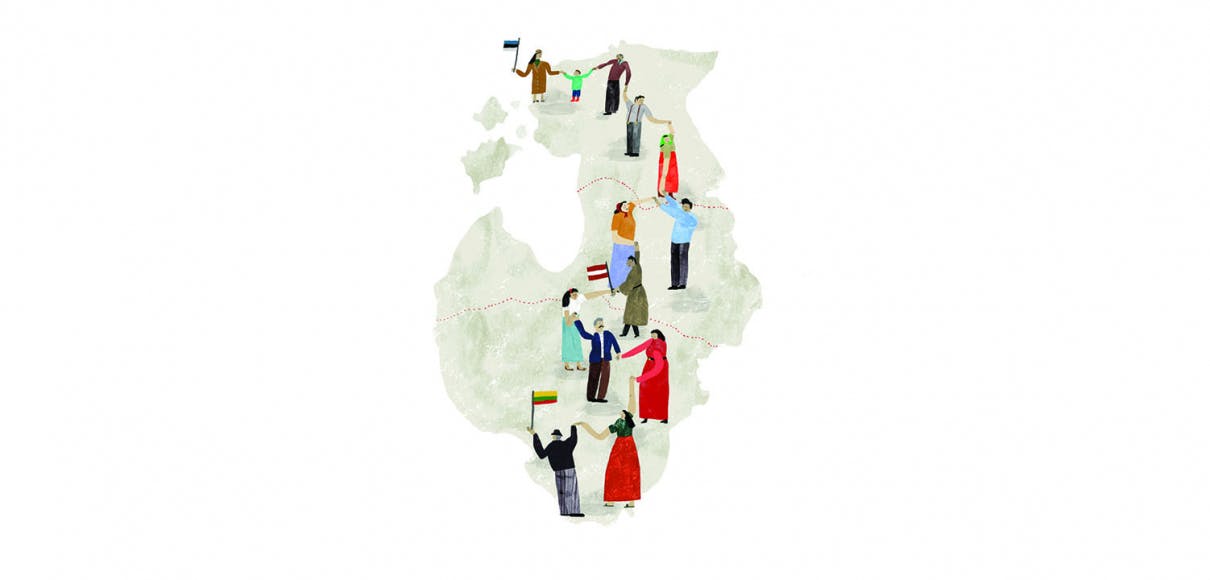This year, Lithuania celebrates its 30th anniversary of independence from the Soviet Union.
Freedom, or laisvė in Lithuanian, means so much to Lithuanian people, as they have had to fight for it many times in their history.
I was born in Lithuania in the ’60s when there was no freedom of speech or religion. My siblings and I were taught the communist view of history in school, but at home, my parents and relatives secretly told us the truth about our country’s history and taught us the Christian faith.
Lithuania was established in the 13th century and grew into the largest country in Europe until it fell under the Russian Empire in 1795. Lithuania became a democratic state in 1918 and remained independent until the Soviet Union and Nazi Germany divided Europe into spheres of influence and allowed the USSR
to occupy the Baltic states under the Hitler-Stalin Pact of 1939.
While the world was celebrating the war’s end in 1945, Lithuania, Latvia, and Estonia endured a brutal Soviet occupation. More than 300,000 Lithuanians were tortured, murdered, or expelled to Siberia. In the mid-1950s, civilians who waged campaigns for freedom were crushed, and people who resisted were persecuted.
In my home, we prayed for freedom. Our prayers eventually were answered.
As I held hands in a human chain that became known as “The Baltic Way,” I felt the tremendous energy of freedom.
On Aug. 23, 1989, on the 50th anniversary of the signing of the Hitler-Stalin Pact, more than 2 million people from three Baltic countries formed a human chain that stretched for 420 miles from Vilnius, Lithuania, to Tallinn, Estonia.
I went to the event in Vilnius, the capital of Lithuania. All around the capital, people were helping each other, cheering, waving Lithuanian flags, and singing. In peaceful demonstrations that year, people sang national and folk songs and hymns previously banned, which is why the Baltic Independence Movements
were called, “The Singing Revolution.”
As I held hands in a human chain that became known as “The Baltic Way,” I felt the tremendous energy of freedom. It was overwhelming to be a part of this massive parade of hope for a better life. It was a cry to the world, “Don’t forget us. We want to live in freedom. We don’t want to be slaves!”
Nearly every Baltic student at the time belonged to the Communist Youth organization. Students were compelled to join if they hoped to attend university. After the Baltic Way demonstrations, I, along with thousands of others, canceled my membership to that organization as we no longer feared the consequences.
Seven months later, Lithuania became the first Soviet-controlled country to regain its independence — an independence that withstood Soviet aggression in 1991 that left more than one dozen dead and hundreds injured.
Six days after Lithuania’s independence, I married my wife, Asta. Our wedding occurred during the Soviet Union’s blockade on Lithuania in 1990.
There was no gasoline or natural gas available except on the black market. We had to take cold showers. Store shelves were empty of sugar, salt, flour, and other items. The blockade took its toll, but we knew it was better to be poor, but free. Today, Lithuania has a growing economy and is part of the European
Union, NATO, and the Eurozone.
My life there taught me the value of freedom. I will never take this for granted. Problems we face now seem insignificant compared to the life I knew. I have learned to see the world with grateful eyes and to never give up on hope.
Dainius Vaičekonis is an award-winning soloist and collaborative artist in the U.S. and Europe. Vaičekonis, who earned his doctorate in musical arts from the University of Washington, is an assistant professor of piano and head of keyboard studies at Seattle Pacific University.
Illustration by Liz Rowland




